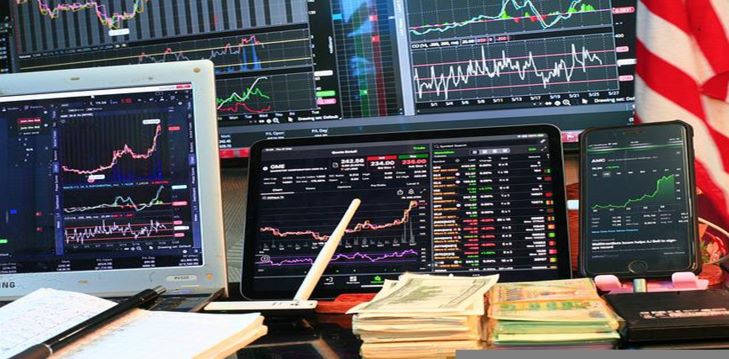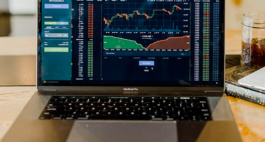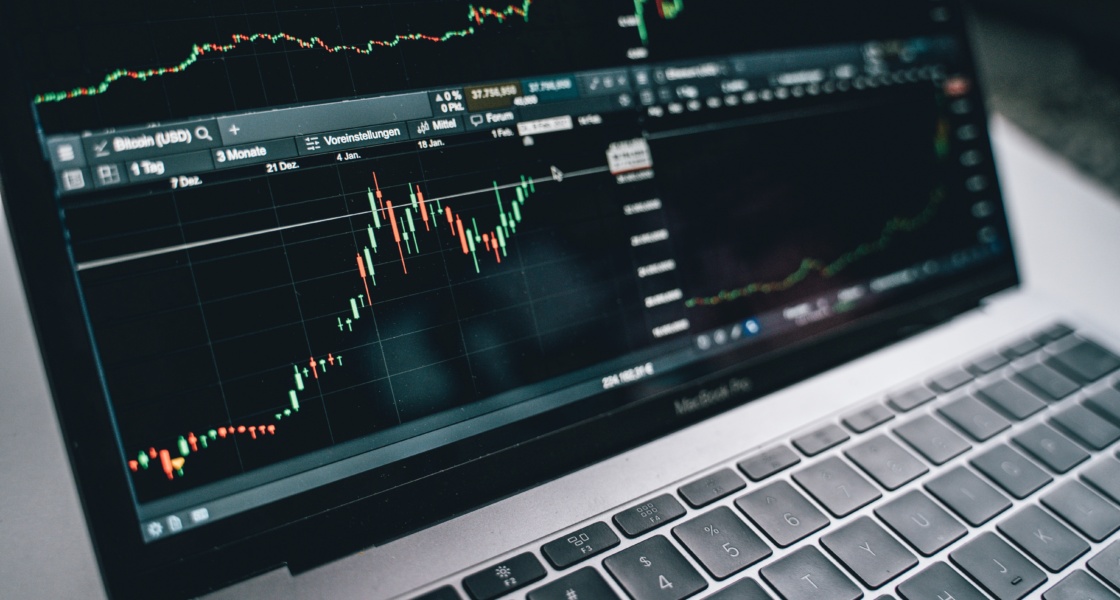
Why should you join our Funded Trader Program?
- Fully funded trading account.
- Big profits up to 80% profit split.
- Mobile International Trading.
- You’re not liable to losses.
- 10% Drawdown.
- Robust Technology and Deep Institutional Liquidity.


Forex Trading for Beginners
When you’re thinking about trading, the first question that enters your mind is whether you should trade Forex or Stocks. A good way to decide is by considering how much you can invest, how much time to invest, and your goals for investment.
Stock and forex trading requires that you have a brokerage account and know how the market operates. The stock market is where people can buy and sell their own shares of companies in public exchanges, while the forex market is basically where different currency pairs are traded.
If you are a beginner, it is usually advisable to work with online brokers as they usually allow users to buy and sell stocks online without any real money. This can be done through demo accounts which function just like real accounts, except they cannot be funded with real money. But if you do not find a good brokerage account, you can consider working with companies like Audacity Capital.
Audacity allows you to learn the ins and outs of forex trading, and once you feel confident about your skills, they will fund your account so that you can begin making profits. However, before choosing the market you want to venture into, it is wise to know their difference to select wisely. Here is a detailed explanation of Forex vs. stocks that will help you know the way forward.
Forex trading involves the buying and selling of currencies to make profits in the difference between their exchange rates. Forex markets are open 24/7 and operate worldwide, so you can trade whenever you want.
The most popular currencies to trade are the U.S. dollar, the Euro, and the Japanese Yen. You can also buy less-popular ones like Mexican pesos, Indian rupees, and Chinese yuan.
Normally, forex traders make money by predicting how currency exchange rates will change over time. They don’t buy a certain amount of currency in hopes that its value will go up or down. They buy and sell currency with each other as it changes hands on a second-by-second basis. This is done through an intermediary known as a “broker,” who charges a fee for each transaction.
Stock trading is a way of buying and selling stock. You buy shares of a company, then sell them later when they’re worth more or less than you bought them for. Basically, Stocks are shares of a company’s ownership, which means that if you own stock in a company, you have a small piece of the pie. When the business makes money, so do you.
The idea behind stock trading is to make money by trading stocks one at a time to earn a profit. This may sound simple, but it takes time to learn and practice how to trade stocks to become a successful investor. As an investor, you might purchase shares of stock in a company for many different reasons, but two common ones are:
If you’re a beginner investor who has taken the first steps towards a future of big gains, you might be wondering: what’s next? You’ve opened an online stock account and started buying mutual funds. You can already tell that the stock market is exciting and full of possibilities but there are also some downsides to this kind of investing. For one thing, there’s no telling when you’ll actually have enough money to make a significant impact on your portfolio. And for another thing, stocks are quite volatile as the market could rise or fall at any time, without warning, meaning that rapid fluctuations in your investments are par for the course.
On the other hand, Forex is an exciting new way to earn money and it has all of the benefits of earning profits by buying and selling quickly. But it is also volatile and you could lose all your profits if you choose the wrong leverage. So, which one do you choose?
If your new, this may be a doubting task, but do not worry because in this section we will break everything down to help you choose your market wisely.
If you want to become a forex stock trader, it is important to understand their differences before entering the forex stock market. Although you can make profits in both markets, some factors will make you consider one over the other one. Here is the difference between Forex and stocks trading.

Forex stock trading is highly dependent on its trading prices. This is why it is important to know what affects them to study the market correctly. The forex market is mainly affected by inflation, GDP growth, interest rates, etc.
When it comes to the stock market, its prices are determined by looking at the company’s finances, expansion plans, corporate earnings, etc. Depending on the market you choose, it is crucial to look closely at what affects the prices in the market before buying or selling any asset.
Volatility is among the first things you should check when trying to get into the Forex or stock market. It will help you understand which of the markets is risky and more profitable. Forex is usually the most volatile because it is traded globally. This means you can either make huge profits or losses, depending on your skill level.
On the other hand, stocks are less volatile, making their charts easy to read and understand. However, when there are economic and political shocks, they can become very volatile. While volatility is a factor to consider, it is important to ask yourself what profits you want and at what period. Forex is preferred by those traders who have an appetite for volatile markets and what to make profits over a short time.

With leverage, you can make much more profit with very little cash. Leverage is an excellent investment strategy that can be applied in the Forex and stock market. It is where a broker multiplies your trading money based on the leverage you choose.
For example, if you choose a leverage of 1:20, your money will be multiplied 20 times. This is simply to help you increase the potential of your returns. However, this may not always be the case, as you can make losses with high leverage trading accounts.
Forex is the one that mostly has a higher leverage compared to stocks. Therefore, when looking at forex trading vs. stock trading, it is vital to assess their risks based on leverage. Alternatively, you can use Audacity if you are skilled and have no starting capital. The firm will fund your forex trading account and split the profit with you equally.
Is it possible to trade at any time of day in both markets? These two markets have different trading hours, which is why it is also a factor to consider when choosing between stocks vs. forex trading. The United States stock exchange market is usually open between 9.30 a.m. and 4 p.m. Eastern Time.
On the other hand, the forex market is usually open 24 hours every day in many countries worldwide. This makes Forex flexible as you can always open a position at your preferred time of day.

Liquidity refers to how easily one currency can be exchanged for another. Liquidity is important to traders because it affects the cost of buying and selling a currency and thus whether or not it’s worth trading at all. If you’re looking to trade in a large amount of a particular currency, you want to make sure it has enough liquidity. Otherwise, you won’t have much luck finding someone to buy from or sell to.
When it comes to the Forex and stock market, they are both liquid, but the Forex is highly liquid since it is the largest market in the world. The stock market is also liquid but has fewer traders in a day compared to forex trading.
While some people choose to invest in the stock market, others choose to trade in foreign currency. However, most people do not know which one is much more affordable to start with and will give them the most returns. Many new investors believe that stock trading is less costly and can earn money in a short period. This is actually not true, especially if you are looking for fast profits. The market could be manipulated, and besides, stocks have high transaction costs than Forex.
With Forex, you can take advantage of leverage and start with small capital. So long as you choose the leverage wisely and practice risk management skills, you can make a profit within a short time. Companies like Audacity are also there to help you improve your forex trading skills by providing you with the right forex trading resources.
For decades, stock brokers have been the go-to choice for investors wanting to take advantage of the ever-fluctuating currency market. However, it’s possible that the tables are turning. Many people are turning to Forex as they find it to be easier in terms of research and profit-making. But all in all, it is important to weigh your options when looking at Forex vs. stocks to make a sound decision.













According to many traders, forex trading is easier to trade since you can do it round the clock. On the other hand, stock market can only be traded from Monday to Friday and you may fail to access the entire market.
If you want to make profits in the shortest time possible, you should go for Forex trading. The market is volatile, offering more trading opportunities unlike the stock market.
Stock and Forex market are both riskier. However, Forex is more risky due to leverage and other things that affect currencies.